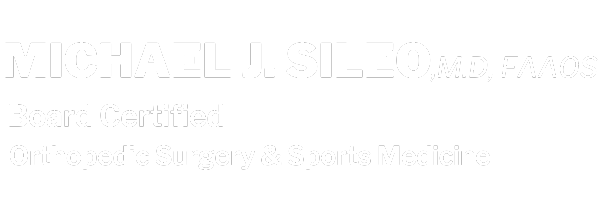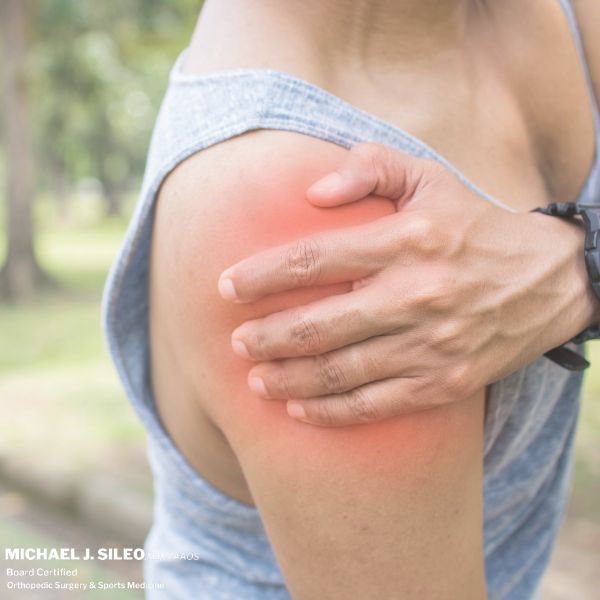The rotator cuff is a group of muscles and tendons that stabilize the shoulder joint and allow you to lift and rotate your arm and shoulder. Because it’s heavily used in daily activities and sports, the rotator cuff is highly prone to injury. A rotator cuff tear or rotator cuff tendinitis is considered a common shoulder injury, often resulting from wear and tear, repetitive movement, or sudden trauma.
If you are experiencing shoulder pain, weakness, or limited range of motion, you may be dealing with one of several rotator cuff problems.
Causes of a Rotator Cuff Injury
Rotator cuff injuries occur when a rotator cuff tendon becomes irritated, inflamed, or torn. Rotator cuff tendinitis usually develops from repetitive overhead movements, such as throwing a ball, lifting, or painting. Over time, tears in the rotator cuff can progress from a partial tear to a complete tear.
Causes of rotator cuff problems include:
- Repetitive strain from work or sports
- Bone spurs that create shoulder impingement
- Natural wear and tear with age
- Sudden trauma, such as a fall or lifting injury
According to Johns Hopkins Medicine, rotator cuff disease is among the most frequent causes of shoulder pain in adults.
Symptoms and Causes of Rotator Cuff Injuries
A rotator cuff problem can cause:
- Shoulder pain at rest and during movement
- Weakness in the arm and shoulder
- Limited range of motion
- Difficulty sleeping on the affected side
- Clicking or popping in the shoulder joint
A physical exam, x-ray, or magnetic resonance imaging (MRI) may be required to confirm the diagnosis and identify whether you have rotator cuff tendinitis, a partial or complete rotator cuff tear, or shoulder impingement.
Torn Rotator Cuff
A torn rotator cuff happens when one of the cuff tendons pulls away from the humerus (upper arm bone). Tears are categorized as:
- Partial tear – When the rotator cuff tendon is damaged but not fully detached.
- Complete tear (full-thickness tear): When the tendon separates completely from the bone, often causing severe pain and weakness.
A torn tendon may require advanced treatment options, and in some cases, your provider may recommend surgery.
For many patients, Dr. Sileo recommends conservative treatment options first. However, in the case of a severe rotator cuff tear, rotator cuff repair or rotator cuff surgery may be necessary.
Rotator Cuff Repair and Surgery
Management of rotator cuff tears depends on the severity:
Nonsurgical treatment:
- Physical therapy to restore range of motion
- Stretching and strengthening exercises to support the shoulder blade and shoulder joint
- Pain relievers and anti-inflammatories
- Sports medicine rehabilitation
Surgical options (for severe or persistent injuries):
- Rotator cuff repair using minimally invasive arthroscopy
- Open surgery for large or complex tears
- Reverse shoulder replacement or shoulder replacement surgery if joint damage is extensive
Tendinitis and Shoulder Impingement
Rotator cuff tendinitis occurs when the tendons of the rotator cuff become irritated or inflamed, often due to shoulder impingement. This happens when the tendons rub against the bones of the shoulder during movement.
Symptoms of tendinitis include:
- Dull ache in the shoulder joint
- Pain when lifting or lowering the arm
- Stiffness and reduced flexibility
Early management and treatment with conservative options like physical therapy, rest, and anti-inflammatories can prevent the condition from worsening into a torn rotator cuff.
Management and Treatment Options
Physical Therapy and Pain Relief
For most rotator cuff injuries, physical therapy is the cornerstone of recovery. A physical therapist will design a rehabilitation program that focuses on:
- Improving range of motion
- Strengthening the muscles and tendons of the shoulder
- Reducing stress on the rotator cuff tendon
- Exercises to improve shoulder stability and prevent reinjury
Other treatment options may include:
- Pain relief with medication or injections
- Rest and activity modification
- Targeted exercises to restore function
- Sports medicine techniques to support athletes returning to play
When Surgery Is Needed
While many rotator cuff injuries improve with nonsurgical treatment, a severe rotator cuff tear may require surgery. Your provider may recommend surgery if:
- You have a complete tear
- Conservative care has not provided relief
- You experience ongoing pain and weakness
- You need to repair a torn rotator cuff for active lifestyle demands
Surgical recovery takes time, but with proper rehabilitation, most patients regain strength and return to their normal activities.
The rotator cuff is vital for shoulder function, but rotator cuff injuries like tendinitis, impingement, and tears are common. With the right management and treatment, including physical therapy and, in some cases, rotator cuff surgery, patients can heal, regain mobility, and prevent further shoulder injury.
In cases where conservative care is not enough, rotator cuff surgery may be required. Dr. Sileo carefully evaluates each patient to determine the best option, whether that means rotator cuff repair, open surgery, or advanced procedures like reverse shoulder replacement.
His expertise in orthopedic surgery and recognition as a Castle Connolly Top Doctor assure patients that they are receiving nationally recognized, top-tier care.




